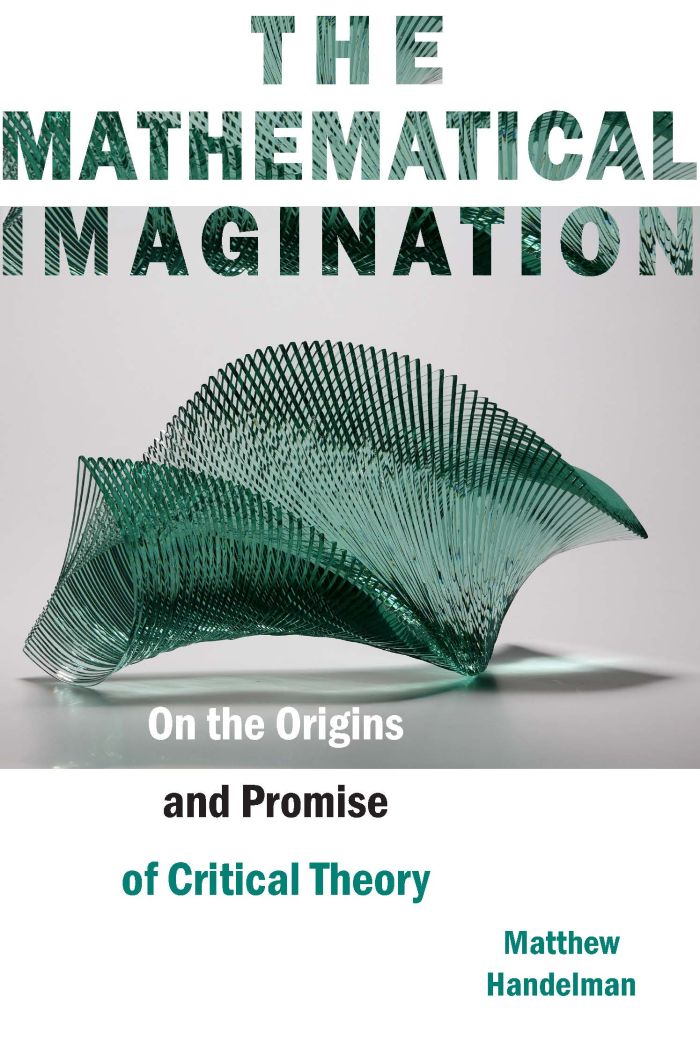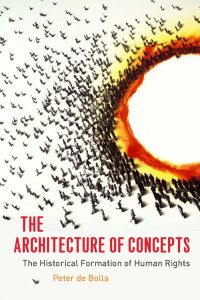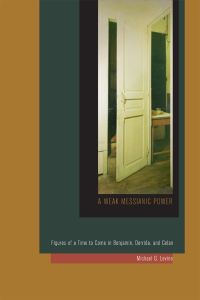The Mathematical Imagination
On the Origins and Promise of Critical Theory

This book can be opened with

This book offers an archeology of the undeveloped potential of mathematics for critical theory. As Max Horkheimer and Theodor W. Adorno first conceived of the critical project in the 1930s, critical theory steadfastly opposed the mathematization of thought. Mathematics flattened thought into a dangerous positivism that led reason to the barbarism of World War II. The Mathematical Imagination challenges this narrative, showing how for other German-Jewish thinkers, such as Gershom Scholem, Franz Rosenzweig, and Siegfried Kracauer, mathematics offered metaphors to negotiate the crises of modernity during the Weimar Republic. Influential theories of poetry, messianism, and cultural critique, Handelman shows, borrowed from the philosophy of mathematics, infinitesimal calculus, and geometry in order to refashion cultural and aesthetic discourse.
Drawn to the austerity and muteness of mathematics, these friends and forerunners of the Frankfurt School found in mathematical approaches to negativity strategies to capture the marginalized experiences and perspectives of Jews in Germany. Their vocabulary, in which theory could be both mathematical and critical, is missing from the intellectual history of critical theory, whether in the work of second generation critical theorists such as Jürgen Habermas or in contemporary critiques of technology. The Mathematical Imagination shows how Scholem, Rosenzweig, and Kracauer’s engagement with mathematics uncovers a more capacious vision of the critical project, one with tools that can help us intervene in our digital and increasingly mathematical present.
The Mathematical Imagination is available from the publisher on an open-access basis.
Against the familiar lament that the inappropriate application of mathematical reasoning abets social reification, de-vitalizing abstraction and instrumental rationality, Matthew Handelman rescues forgotten attempts by three leading German Jewish intellectuals, Rosenzweig, Scholem and Kracauer, to argue otherwise. In their search for a ‘negative mathematics’ that has critical potential, they foreshadowed ways in which the yawning gap between the humanities and STEM fields may be overcome in our digital age.—Martin Jay, University of California, Berkeley
Handelman shows how spiritual, quirky, and inventive engagements with math could suggest its affinities with projects of emancipation and ethics of dignity. His argument troubles oppositions between the humanities and STEM fields and promises to renew how humanists regard the incursion of positivism in the digitialization of method and episteme.—Anna Kornbluh, University of Illinois–Chicago
The Mathematical Imagination presents mathematics and digital technologies as providing a key to unlock the critical possibilities hidden in language to give a voice to silenced communities... [Handelman's] methodology and ideology are deliberately provocative, and he intends to develop a post-academic approach to fix the weaknesses of traditional and official discourse.—Phenomenological Reviews
Any reader interested in the Frankfurt School and the history of Critical Theory who subscribes to the longstanding notion that this school of thought is fundamentally incompatible with quantitative thinking and the field of mathematics is in for a surprise with The Mathematical Imagination... The strengths of The Mathematical Imagination lie in the way in which mathematics in reclaimed for the project of Critical Theory; the unusual connections it articulates in the work of Scholem, Rosenzweig, and Kracauer; and the author''s fluency in both mathematical and aesthetic theory.—Monatshefte
Introduction: The Problem of Mathematics in Critical Theory, 1
1. The Trouble with Logical Positivism: Max Horkheimer, Theodor W. Adorno,
and the Origins of Critical Theory, 25
2. The Philosophy of Mathematics: Privation and Representation in
Gershom Scholem’s Negative Aesthetics, 65
3. Infinitesimal Calculus: Subjectivity, Motion, and Franz Rosenzweig’s Messianism, 104
4. Geometry: Projection and Space in Siegfried Kracauer’s Aesthetics of Theory, 145
Conclusion: Who’s Afraid of Mathematics? Critical Theory in the Digital Age, 187
Acknowledgments 201
Notes 205
Bibliography 245
Index 269
Please click the link below to download the Open Access version of this book.
- The Mathematical Imagination - epub






